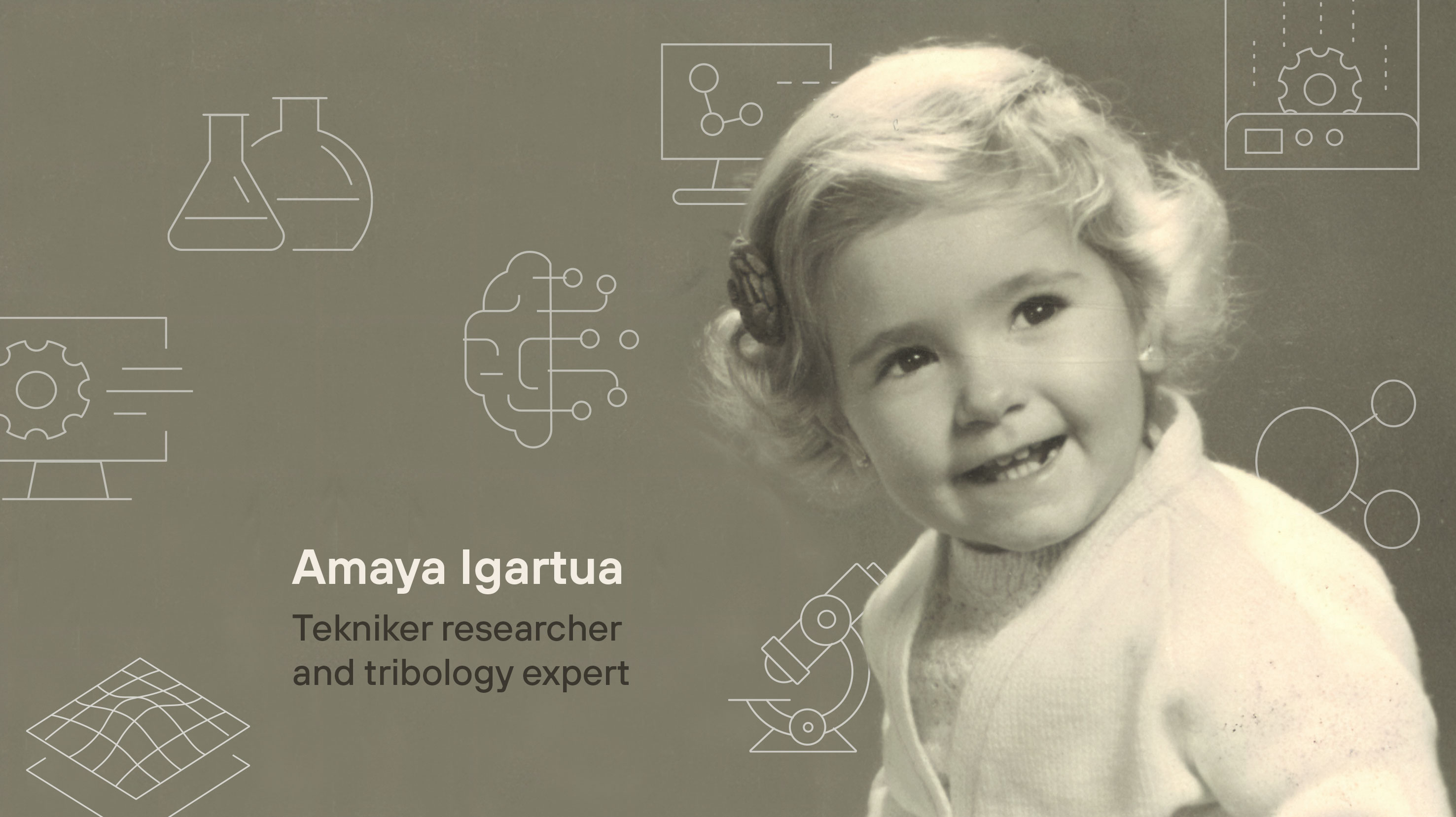Growing with our women researchers. Amaya Igartua
An interview with Amaya Igartua, a Tekniker researcher and an expert in tribology on the occasion of the International Day of Women and Girls in Science.

It is only a few days before the International Day of Women and Girls in Science and Tekniker wants to underscore the role played by its women researchers who are highly qualified experts in the world of science and technology and learn more about their work, how they view the world of science and, more specifically, the presence of female talent in this sector.
With us today is Amaya Igartua, a senior Tekniker researcher and an expert in tribology.
1.- How do you remember the moment when you decided to join the world of science and technology?
As a child, when still at school, the “Three Wise Kings”, gave me a chemistry set at Christmas which I thoroughly enjoyed with my friends. I was a big fan of mathematics, chemistry and biology and eventually did a baccalaureate in science, although I took the final decision during my University Orientation Course (COU) prior to entering university.
2.- What made you decide to work in this sector? Did you have a scientific model or reference at the time?
Yes, I learned many things thanks to two brilliant teachers who also greatly influenced my preferences: miss Carmiña, for biology, and miss Mari Carmen Lizarralde, for maths and chemistry. I think that the passion they felt whenever they explained biology, or how atoms or molecules operated and mathematical logic, gave me a perfect understanding of the main concepts. Both teachers were familiar with the world of research.
3.- Has your professional career turned out to be what you expected?
Yes, it is an honour to work for a technology centre like Tekniker based in my home town, as it is a leading research centre in Europe.
The truth is that when I joined Tekniker in 1988 I specialised in tribology, a science that studies how materials such as coatings and lubricants behave under conditions of friction and wear so they can be applied to different tribologic systems such as machine components, hip prostheses, non-slip floors, etc. With tribology you can design systems and components increasing its durability and being more sustainable and energy-efficient.
I’m currently coordinating initiatives related to materials, although I have worked for practically all the centre’s units covering a broad range of thematic subjects related, for example, to sensors, additive manufacturing processes, industrial maintenance, water treatment or recycling.
4.- What would you say to young people that would like to study scientific and technological careers?
I would tell them to make the effort of understanding what they will study. Scientific careers usually involve internships to reproduce some of the concepts and reactions studied in books in the laboratory setting. I still remember a chemistry practice in which we extracted caffeine from tea that was just like following a cooking recipe.
I would also point out that they must not be afraid when choosing a career because “learning how to learn” is what really matters. In our professional lives we must specialise in a specific area that changes as requirements and challenges evolve. It is important to feel motivated and have the right attitude to deal with these new challenges.
5.- What do you think the future will hold for women in scientific and technological professions?
As professionals, women have a very promising future. There are currently no factors limiting the professional development of women and a perfect balance can be established between what is an attractive profession and a totally fulfilling personal life.
